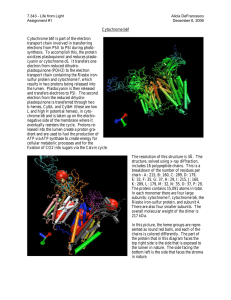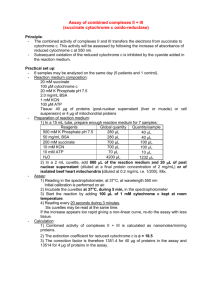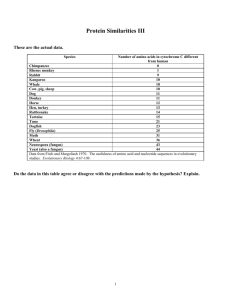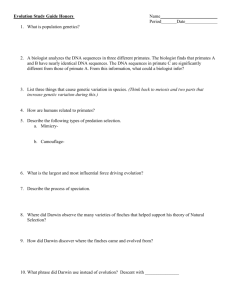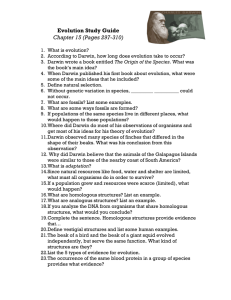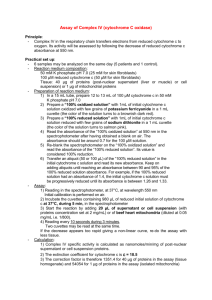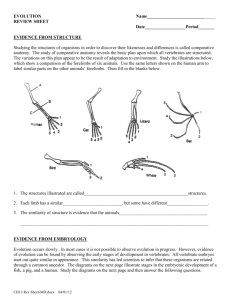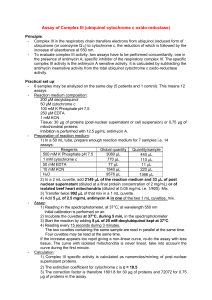Anti-Cytochrome C antibody ab18816 Product datasheet
advertisement
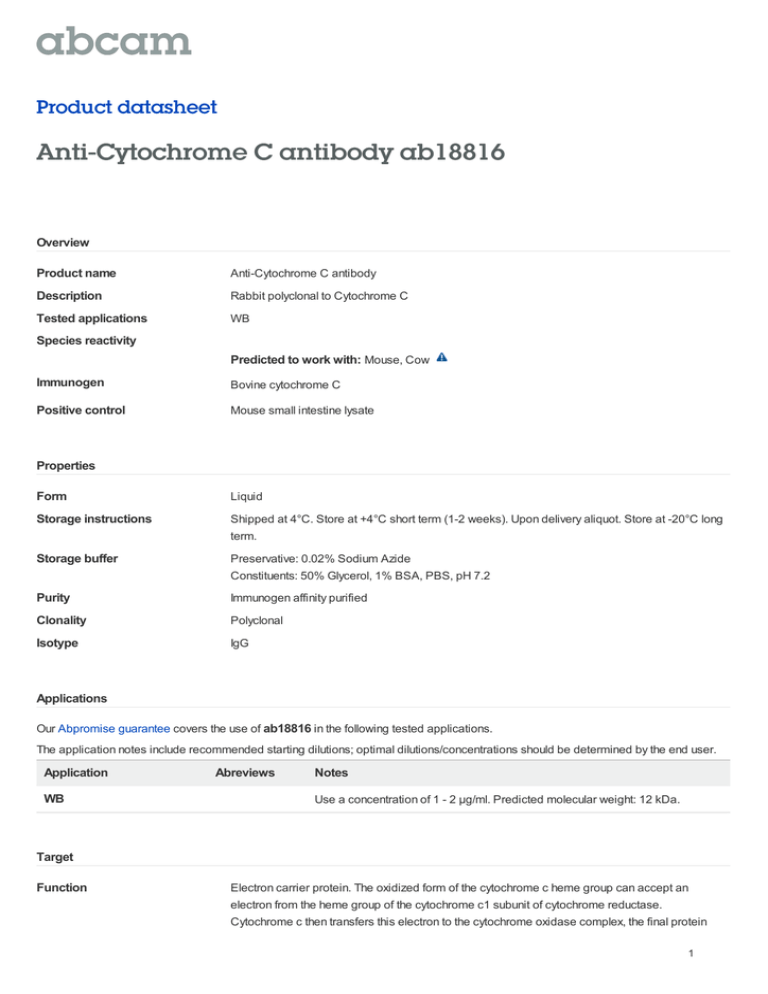
Product datasheet Anti-Cytochrome C antibody ab18816 Overview Product name Anti-Cytochrome C antibody Description Rabbit polyclonal to Cytochrome C Tested applications WB Species reactivity Predicted to work with: Mouse, Cow Immunogen Bovine cytochrome C Positive control Mouse small intestine lysate Properties Form Liquid Storage instructions Shipped at 4°C. Store at +4°C short term (1-2 weeks). Upon delivery aliquot. Store at -20°C long term. Storage buffer Preservative: 0.02% Sodium Azide Constituents: 50% Glycerol, 1% BSA, PBS, pH 7.2 Purity Immunogen affinity purified Clonality Polyclonal Isotype IgG Applications Our Abpromise guarantee covers the use of ab18816 in the following tested applications. The application notes include recommended starting dilutions; optimal dilutions/concentrations should be determined by the end user. Application WB Abreviews Notes Use a concentration of 1 - 2 µg/ml. Predicted molecular weight: 12 kDa. Target Function Electron carrier protein. The oxidized form of the cytochrome c heme group can accept an electron from the heme group of the cytochrome c1 subunit of cytochrome reductase. Cytochrome c then transfers this electron to the cytochrome oxidase complex, the final protein 1 carrier in the mitochondrial electron-transport chain. Plays a role in apoptosis. Suppression of the anti-apoptotic members or activation of the proapoptotic members of the Bcl-2 family leads to altered mitochondrial membrane permeability resulting in release of cytochrome c into the cytosol. Binding of cytochrome c to Apaf-1 triggers the activation of caspase-9, which then accelerates apoptosis by activating other caspases. Involvement in disease Defects in CYCS are the cause of thrombocytopenia type 4 (THC4) [MIM:612004]; also known as autosomal dominant thrombocytopenia type 4. Thrombocytopenia is the presence of relatively few platelets in blood. THC4 is a non-syndromic form of thrombocytopenia. Clinical manifestations of thrombocytopenia are absent or mild. THC4 may be caused by dysregulated platelet formation. Sequence similarities Belongs to the cytochrome c family. Post-translational modifications Binds 1 heme group per subunit. Cellular localization Mitochondrion matrix. Please note: All products are "FOR RESEARCH USE ONLY AND ARE NOT INTENDED FOR DIAGNOSTIC OR THERAPEUTIC USE" Our Abpromise to you: Quality guaranteed and expert technical support Replacement or refund for products not performing as stated on the datasheet Valid for 12 months from date of delivery Response to your inquiry within 24 hours We provide support in Chinese, English, French, German, Japanese and Spanish Extensive multi-media technical resources to help you We investigate all quality concerns to ensure our products perform to the highest standards If the product does not perform as described on this datasheet, we will offer a refund or replacement. For full details of the Abpromise, please visit http://www.abcam.com/abpromise or contact our technical team. Terms and conditions Guarantee only valid for products bought direct from Abcam or one of our authorized distributors 2
![Anti-Cytochrome C antibody [EP1326-80-5] ab76107 Product datasheet 2 Abreviews 2 Images](http://s2.studylib.net/store/data/012919405_1-aca2b1f1969a664ccaaf17570998f1d3-300x300.png)
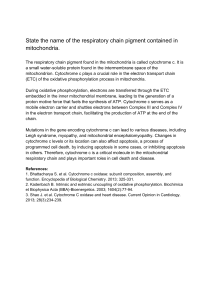
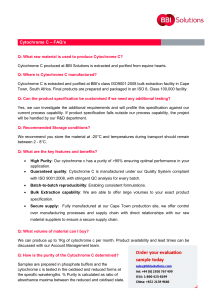
![Anti-Cytochrome C antibody [2CYTC-199] ab50050 Product datasheet 1 Abreviews 3 Images](http://s2.studylib.net/store/data/012919401_1-5f019e703a9981f3a0dc488c8b83106e-300x300.png)
